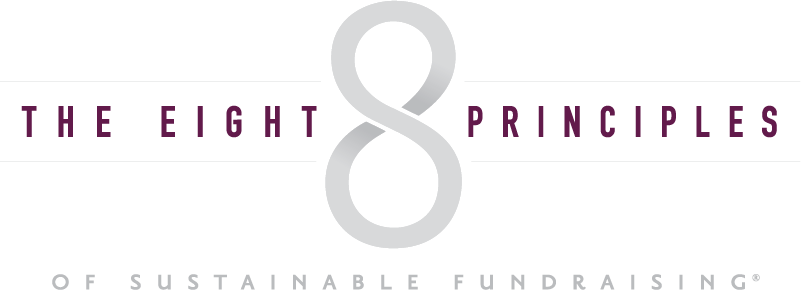
By: James Gilmer, Harbor Compliance
The underlying principle to fundraising success is sustainability: making smart investments in the right people and fundraising strategies, and knowing you are in it for the long haul. At Harbor Compliance we admire The Eight Principles of Sustainable Fundraising® and believe in their power to enhance an organization’s development efforts. Today, we will explore what The Eight Principles™ mean in the specific context of charitable solicitation compliance, or in short, “fundraising compliance”.
If you are new to the topic of charitable solicitation compliance, please start with this blog post. Once you have a basic knowledge of the state requirements, we can dive into the Eight Principles!
-
Donors are the Drivers®
Donors deserve to be able to access information on the charities they support. State charitable solicitation laws are in place so that donors can research your cause and find out how their money is being used. Keeping your charity properly registered to solicit funds is a way that you can put your donors first.
-
Begin at the Beginning™
The biggest fundraising question we get is, “Where should I register my nonprofit for charitable solicitations?” Start by registering in your state of incorporation. This state is likely where the bulk of your fundraising activities takes place. Many of your board members and donors may live in that state as well. Once you’ve become compliant in your incorporation state, analyze your fundraising footprint and identify other states in which you need to register.
-
Leadership Leads™
The board of directors is responsible for the successes and failures of a nonprofit organization, ranging from fundraising, strategic planning, to (you guessed it) compliance. Your board members must understand the importance of staying compliant with IRS and state requirements. Perhaps more importantly, staying compliant demonstrates responsibility and credibility to prospective donors. Again, back to your donors, the drivers!
-
Learn & Plan™
Through diligent research, you will learn the state charitable solicitation requirements and how to be compliant with the same. Now, it’s time for an action plan. With your board or management team, discuss where your charity must register, your budget for compliance fees and services, and how you will keep up with annual renewal requirements. While some charities tackle compliance on their own, many charities outsource management of their nationwide registrations to save time and stress.
-
Work from the Inside Out™
Just as with your fundraising efforts, compliance affects everyone within a nonprofit, starting with the board of directors. The board ensures the nonprofit has current charitable solicitation licenses in each state where the nonprofit solicits donations. At all times, your staff and volunteers may be expected to show proof of 501(c)(3) status and charitable registration to a prospective donor. Lastly, your donors want to make a smart investment in your organization. Without proof that your organization is legitimate or complaint, you can lose a lot of credibility.
-
Divide & Grow™
For many charities, registering to solicit funds in all 41 states is costly and somewhat daunting. Many nonprofits take a divide and conquer (or “divide and grow”) approach in order to be proactive in their compliance. Start by reviewing your donor lists, sources of fundraising income, and budget for compliance. Then, identify key states in which to register first. As your charity grows and the successes of fundraising efforts increase, you can register in additional states as required.
-
Renew & Refresh™
Once you have registered to solicit donations in a state, you are required to renew your registration on an annual basis. The renewal process keeps the state and prospective donors informed of your nonprofit’s current activities, leadership, and financial position. By staying current, you reassure donors that your charity is responsible. Not to mention that you’ll avoid state fines and penalties for noncompliance as well.
-
Invest, Integrate & Evaluate™
Fundraising compliance goes hand-in-hand with your sustainable fundraising efforts. Generally, you should be registered to fundraiser before you even ask for donations. In reality, you may have just learned about your requirements and have been fundraising for years. Perhaps you receive many donations from California or Florida, but not so many from North Dakota. Maybe your charity has rampedup its fundraising efforts nationwide, and your fundraising revenue has exploded upward. Your charity may have unique needs, but at the end of the day, compliance is not optional – it is the law. By staying compliant, you help prospective donors make a smart decision to support your cause. So, take these considerations to your board, and review your current situation. By investing in compliance and using it to support your fundraising efforts, you truly build a sustainable relationship between your charity and your donors.

James Gilmer is a compliance specialist for Harbor Compliance, which establishes 501(c) nonprofits and helps them stay compliant. Harbor Compliance assists charities in every state and several countries abroad. James takes Leadership Leads™ seriously by serving on the board for two nonprofits in Lancaster, Pennsylvania.


